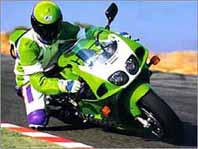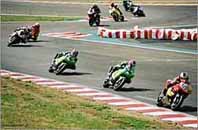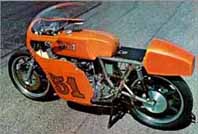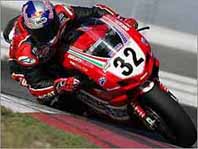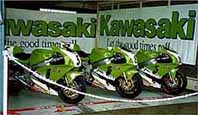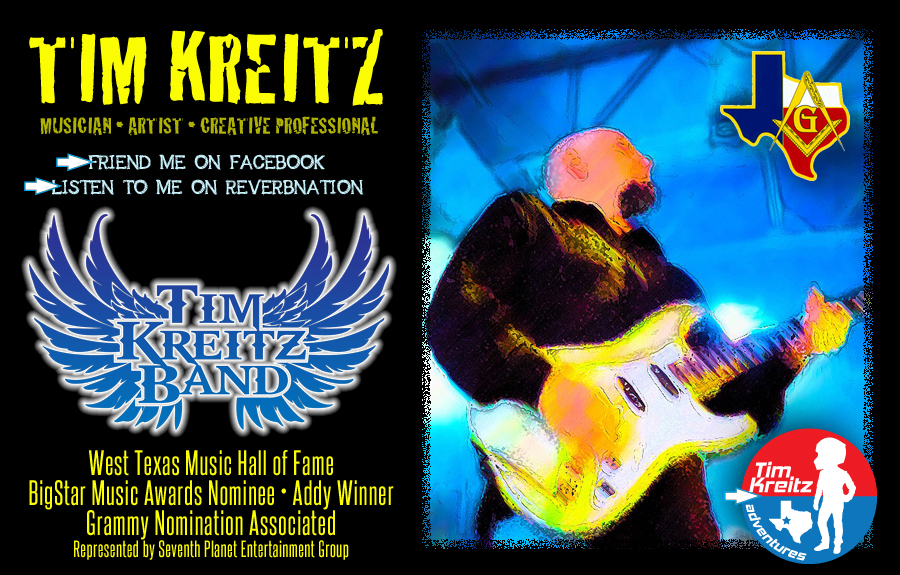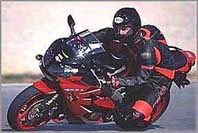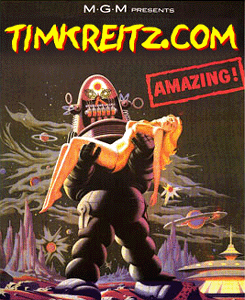Monday, March 06, 2006
The mental aspects of crash recovery

Article #2 in the Tips for New Riders series which appears at OdessaSportbikes.com
By Tim Kreitz
A friend of mine who lives in California was involved in a motorcycle accident several years ago, and found that she had become deathly afraid of her bike when the time came to climb back on. She subsequently asked for advice on whether or not she should ever ride again, since she had become so petrified by the experience.
Unfortunately, there are no easy answers with regard to this topic. There are no absolutes in motorcycling, just like there are no absolutes in driving, flying, or -- for that matter -- walking down the street. It's a risky world and we are imperfect beings who will, at times, make mistakes.
Labor day weekend 1998, my friend Cliff died on his bike, hit by a drunk driver. In the subsequent investigation, I found out things about him that I never knew. He was almost blind in his right eye, he had no motorcycle license (in fact, he had failed the written test), he had less than 500 miles riding experience, and had never received formal rider training. Additionally, we later found out that he had turned into the drunkard's path. And although the accident could've been avoided had the drunk cager been able to react correctly, the whole incident ended up being the amalgamation of lots of bad decisions and mistakes on the part of both parties. Most motorcycle accidents, with regard to their varied circumstances, tend to follow this same outline. Rarely does a single factor cause a crash. In only a fraction of all motorcycle mishaps does a situation occur where the rider is absolutely powerless to either avoid the accident or at least make it less severe.
That said, none of us are untouchable by any means as motorcyclists, and we must all realize this fact. Granted, most of us do. That is why I will literally cuss myself out if I find myself daydreaming while going down the road on my bike. Doing so can get you hurt or killed, so you must strive with great effort to stay focused all the time. Riding a motorcycle is 90 percent mental, and strategies accommodating that dynamic simply must be a part of your daily riding ritual. Every intersection must be viewed as a potential ambush. Every curve must be seen as an angry dragon's tail, waiting to slap you down. As I said, this doesn't make you immune to mishap, but it will at least improve your chances out there. This is part of where I find my strength and authority when I ride.
This brings me to my last philosophical point on this issue. As Yin is to Yang, so must your authority be to your fear. Like the spinning of your cogs and sprockets, you must find a balanced harmony between a healthy fear of the bike and your authority over it. Too much fear results in a lack of confidence, which can cause mishap. Too much authority results in overconfidence, which can also cause mishap.
“If you're scared of your bike right now, stay off of it for a while,” I offered my friend. “Park it and wait.” Eventually, retrospect helped her arrange her emotions and the desire to ride returned. It is also my personal belief that a little prayer here and there never hurt anybody, either.
In such situations, only you can know enough about yourself to determine if you should continue riding after a traumatic episode. I’ve known guys like Crazy Dave Alders who almost died in a crash, but couldn’t wait to heal up so he could ride again. On the other hand, I’ve seen guys like Brandon Kelly, who decided to quit riding forever after a relatively minor accident. There is no shame in either decision. We each weigh the risks of riding against the reward we glean, which is unique unto each of us. For some, the reward is golden and we ride our whole lives. For others, a crash can be a wake-up call that, “Hey, this isn’t so important to me after all. Maybe I should try something else.”
Regardless, I also believe there are things happening just outside the window of our comprehension that help us shape our destinies. It is my belief that this becomes manifest in what we might call our "instincts" or "intuition." Especially with regard to motorcycling, should you always listen to your instincts. Knowledge, riding skill, and good street strategy combined with listening to your instincts will almost never guide you astray, and can result in a lifetime of accident-free motorcycling.



